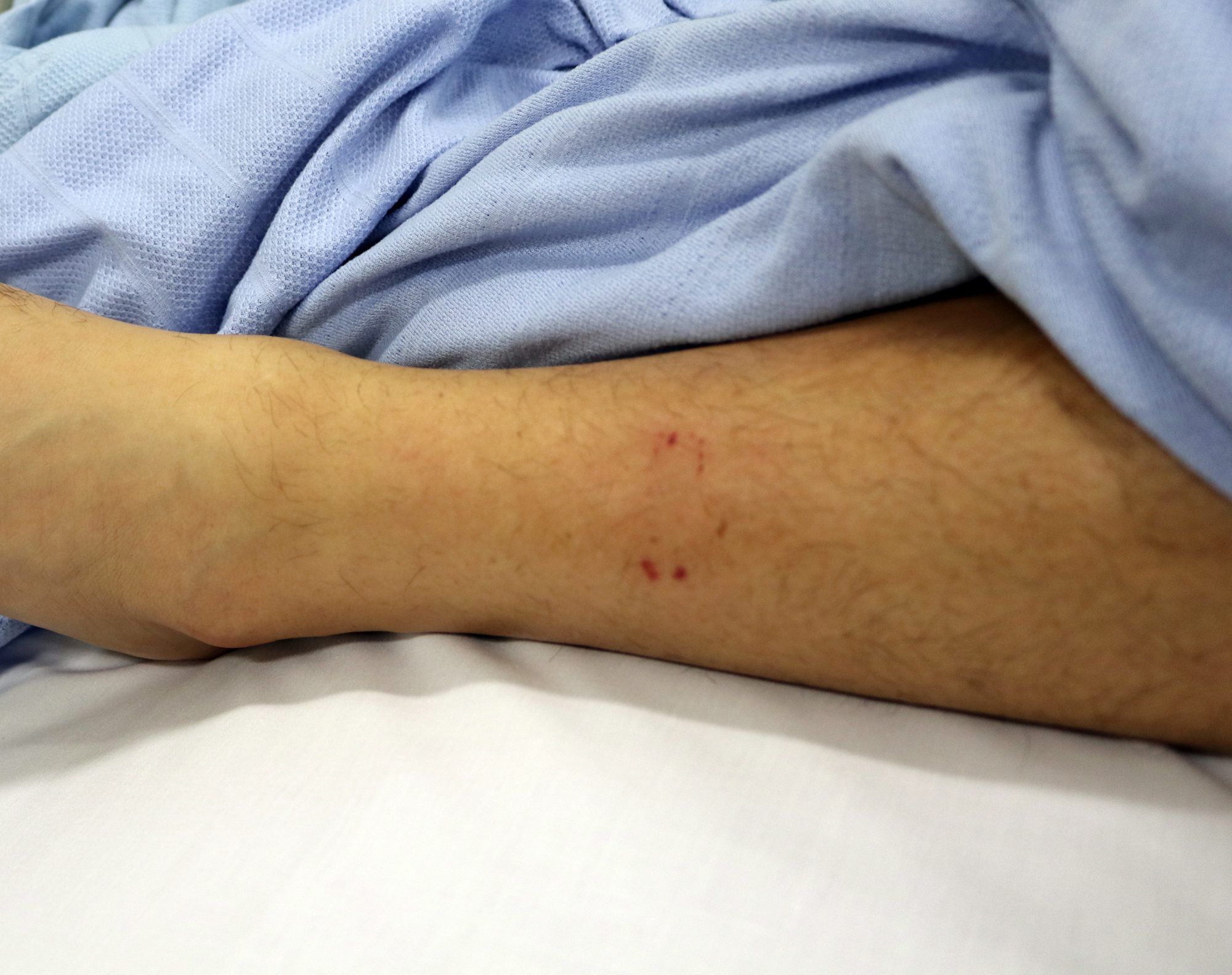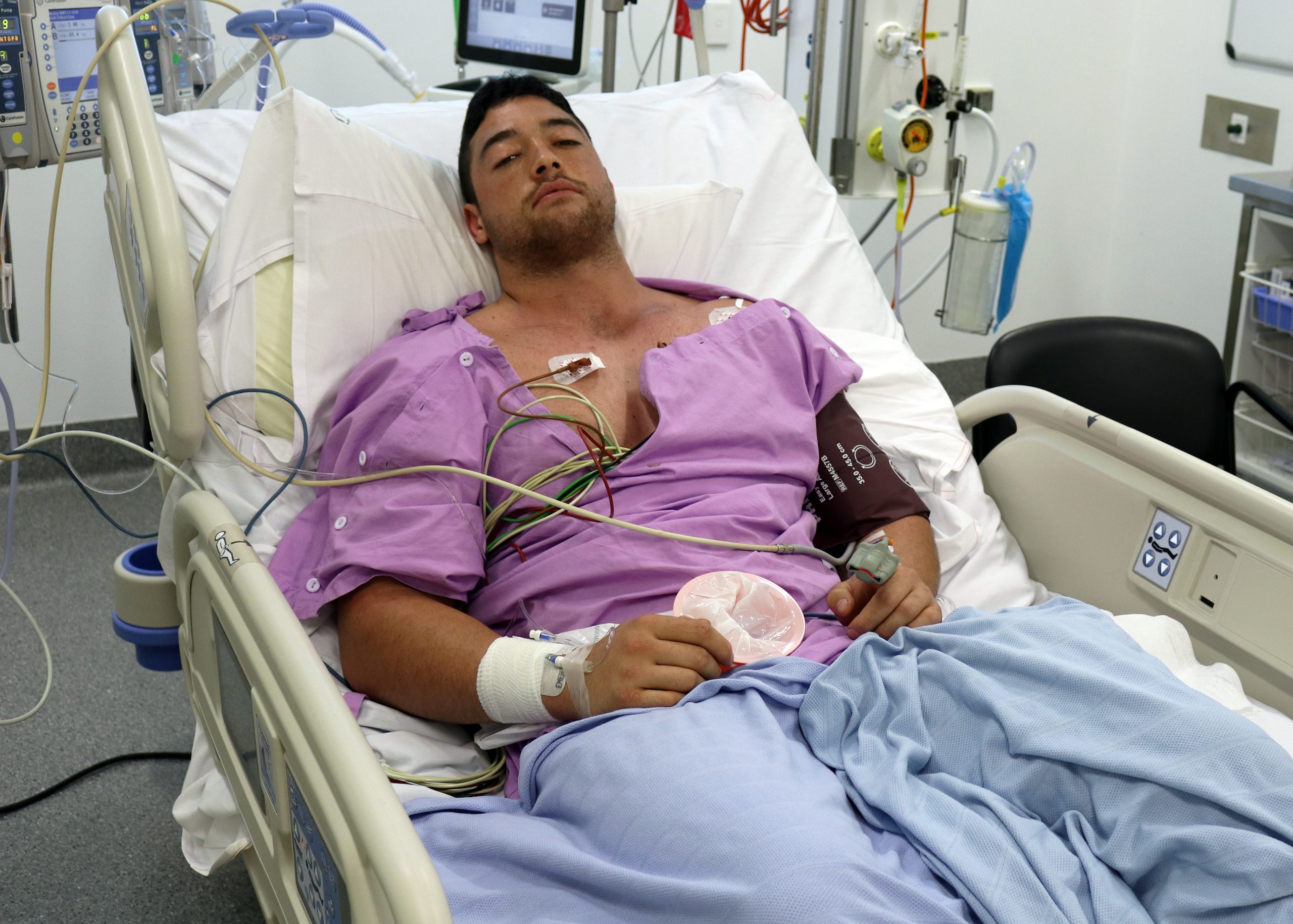Moranbah man McIver Watene has survived two bites by one of the world’s deadliest snakes.
Venom from a brown snake left the 24-year-old in Mackay Base Hospital’s Intensive Care Unit for two days while doctors worked to stabilise his blood and kidney function.
Brown snakes have a highly venomous bite and this one left Mr Watene with blood coagulation so low even the slightest bump could have caused him to have a serious and potentially life-threatening bleed.
Snake venom can also cause muscle breakdown that in this case caused an acute kidney injury which almost needed dialysis. He now has to maintain his kidney health to avoid a need for dialysis down the track.
Mr Watene was playing golf with his friends when the snake struck.

“I was playing golf and hit my ball into the rough, so I went looking for it,” he said.
“I felt a prick on my leg, so I looked down and I was standing on top of a snake. The snake has then come around and taken another bite.”
Luckily, Mr Watene and his mates knew what to do thanks to their first aid training. Once he had realised what happened they sprang into action.
“I immediately sat down with my leg below my heart and we didn’t have anything on us, so we used a towel to wrap around the bite,” Mr Watene said.
“We got in the buggy straight away and called 000 on our way to the clubhouse.
“The lady on the phone explained how we needed to put the bandage on so when we arrived at the clubhouse and had a first aid kit, we knew what to do. Shortly after the ambulance arrived.”
Mr Watene was brought by RACQ CQ Rescue chopper to Mackay Base Hospital’s Emergency Department where he was treated with anti-venom. He was then transferred to ICU for ongoing management.
Mackay Base Hospital Intensive Care Specialist Dr Stephen Luke said quick thinking and first aid training saved Mr Watene’s life.
“If Mr Watene and his mates hadn’t acted so quickly and used their first aid training, we could have had a very different outcome. Applying a pressure immobilisation bandage early is critical to slow the spread of venom,” Dr Luke said.
“Often people who are bitten by a snake experience no early obvious symptoms. It’s common for people to start feeling sick a few hours later and only then remember feeling a scratch on their leg.
“Symptoms can progress quickly and may cause cardiac arrest or a life-threatening bleed. It’s much better to come to hospital immediately so we can test your blood regularly to observe any changes over time.
Dr Luke said if bitten by a snake it is important to remain calm and still, phone for help and apply a pressure immobilisation bandage to the limb. Don’t use a tourniquet because this can cause more damage.
“If you have someone there to help, get them to assist by applying a pressure immobilisation bandage if one is nearby but don’t go looking for it yourself. Also, don’t ever run the risk of ignoring a snake bite based on an assumption the snake is non-venomous. Treat all snake bites as serious and call 000.”
While Mr Watene recovers in ICU after his snakebite ordeal he is looking forward to when he can return to the golf course back home.
“This definitely won’t keep me away from playing golf. If I was on the fairway it would have been fine, so I just need to get better at golf,” Mr Watene said.



